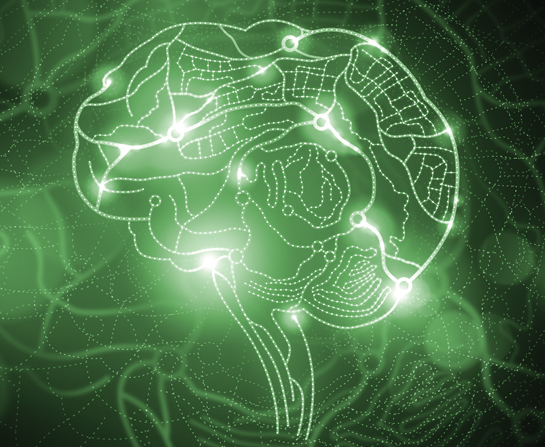Good for the Brain
April 29, 2022 Return

Yuen Kah Hay Professor, School of Pharmaceutical Sciences, Universiti Sains Malaysia
Our brain is a complex organ, and we still have much to learn about how it works. What we do know, however, is that our brain undergoes changes as we age, changes that can affect its ability to function normally.
While some of these changes are due to the natural consequences of ageing, we may develop conditions that can also affect our brain. According to Prof Yuen Kah Hay, our brain consumes more energy than any other organ in the body, roughly 20% of our total energy requirements. Our brain is nourished by a massive network of blood vessels. “Therefore, any damage to the blood vessels can lead to degeneration of brain tissues, possibly leading to neurodegenerative disorders such as cognitive dysfunction, dementia and Alzheimer’s disease,” he says. He adds that hypertension, hyperlipidaemia and diabetes are just some of the conditions that can damage the fine blood vessels in our brain.
Controlling the risk factors of such conditions would be very helpful to maintain our brain health, and thus, Prof Yuen recommends living a healthy lifestyle comprising a balanced diet and regular physical activity. If we need a little extra help, neuroprotective supplements such as tocotrienols can be helpful.
How can tocotrienols help?
Prof Yuen mentions that tocotrienol is a member of the vitamin E family essential for maintaining the health and functions of our nervous system. Thus, tocotrienol supplementation will benefit the elderly as well as those who are younger but have risk factors that can lead to neurological problems such as stroke and dementia.
White matter lesions
The benefits of tocotrienol can be seen in studies on white matter lesions (WMLs). These are lesions that are formed in the white matter region of the brain, often due to small blood vessel disease and other conditions that can cause degeneration of nerve fibres in that region.
Prof Yuen mentions a recent study on 121 human volunteers with WMLs. It is found that, in patients who were not given tocotrienol supplements, the mean lesion volume of the WMLs increased after 1 year, and further increased after 2 years. Those given tocotrienol supplements do not show any significant changes in their lesions, suggesting that tocotrienols are neuroprotective in nature.
Recent studies have shown that WMLs are closely associated with cognitive decline and dementia. Hence, tocotrienols have the potential to be used in the preventive treatment of such neurodegenerative disorders. Moreover, their neuroprotective activity may help reduce injury of the brain tissues during an ischaemic stroke.
Did you know?
Our very own palm oil is one of the richest sources of tocotrienols. Tocotrienols from our palm oil are extracted in a concentrated form and formulated into soft gelatin capsules with specified dose strengths (50, 100 or 200 mg per capsule), to provide optimal benefits when taken as a supplement.
If you like this article, do subscribe here.

